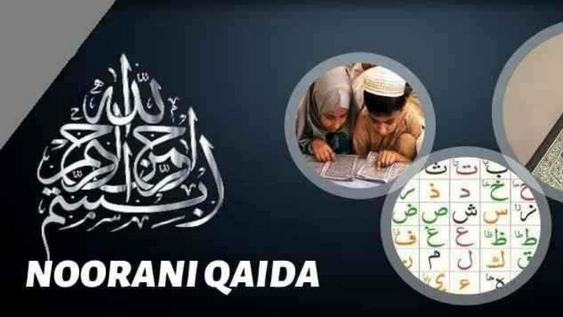Quran, being the last divine message of Allah Almighty, holds beliefs, commands, jurisprudence, and juristic principles for the whole of humanity, until the day of judgment. Holy books prior to the Quran were meant for only a specific nation and a specific area. So were their commands and principles confined to that specific nation. A new apostle was sent by Allah SWT after some time. But when Prophet Muhammad Peace was upon him came to the world as the last messenger of Allah Almighty. He was given the last transcript for the whole of humanity, as he was sent for the whole of humanity as the apostle of Allah Almighty. It shows that the Quran is a holy book that contains a message and teachings for the whole of humanity. What does Quran teach us, let’s have a look at it?
Tauheed, Oneness of Allah:
The foremost teaching of Quran e Kareem is the oneness of Allah. It is the message that binds all the divine religions together. Tauheed is the exact opposite of Shirk I.e.; believing in many Gods. It is the teaching which all the apostles of Allah Almighty from Adam AS to Prophet Muhammad Peace be upon him. This is what Deen e Islam is. Allah Almighty said in Quran e Kareem:
“Verily, Islam is the only religion in the eyes of Allah Almighty”
Tauheed or the oneness of Allah is an important belief according to Islam. Allah Almighty described this belief so many times in the Quran e Kareem. As in Sura Al-Ana`am, Tauheed is described in the following words;
“That is Allah, your Lord! There is no God but He, the creator of all things. Then worship him, and He has the power to dispose of all the affairs”
Another important Surah of the Quran e Kareem, which beautifully describes the concept of the oneness of Allah, is Sura e Ikhlas:
“Say, “He is Allah, (who is) one,
Allah, the self-sufficient,
He never begets nor is born,
Nor is there to Him any equivalent”
Prophethood and Benevolence of Prophet Muhammad (SAW):
Another teaching of the Quran is the prophethood and benevolence of Prophet Muhammad Peace be upon him. Allah Almighty tells many beautiful characteristics of Prophet Muhammad Peace to be upon Him, as a human being and as a messenger of Allah Almighty. Some verses of the Holy Quran about Prophet Muhammad Peace be upon him are as follows.
“And indeed you possess a noble character.”
Another quality of Prophet Muhammad Peace upon him is his affectionate and compassionate. Quranic teachings describe it as;
“There has certainly come to you an apostle from among yourselves. Grievous to him is your distress; he has a deep concern for you and is most kind and merciful to the faithful”
Jurisprudence and Juristic Principles:
Quran discusses every aspect of human life. It deals with everyday matters of a man’s life. Quran teaches us all the juristic principles regarding our domestic and social life. How to get married, how to get a divorce? What are the commandments about weaning a kid? What is meant by Idda? What dowry (Haq Mehar) is? What is the period of waiting for a divorced woman? What is the period of waiting for a widow? How two people should deal with each other in a business deal? What is the dress code for a Muslim woman? How and why a man should lower his gaze? Basic juristic principles of these and many other day-to-day life affairs are discussed in the Quran. Quran teaches us the ways to solve our everyday life affairs and juristic principles about every important matter.
Morality and Moral Values:
A large portion of the teachings of the Quran is based on morality and moral values. Quran preaches the highest ethical values of humanity. Some of these ethics are honesty, truth, fair dealing, sincerity, sympathy, empathy, rule of law. Quran teaches its followers these and many more ethical values many times. There is a concept of being answerable on the day of judgment. According to Islam, everyone is answerable before Allah SWT, for good deeds or evil on the day of judgment. This sense of being answerable to Allah, which is called Taqwa according to the lessons of the Quran, is the basic reason behind every moral value. As no juristic law deals with most of these moral values. Fear of Allah is the key to a moral society. Allah Almighty says in Quran e Kareem;
“O you who have faith! Be wary of Allah and be with the truthful.”
Another splendid verse of the Quran e Kareem shows the value of morality in the eyes of Allah’s SWT.
“Piety is not to turn your faces to the east or west; rather is (personified by) those who have faith in Allah and in the Last Day, the angels, the Book, and the prophets, and who gives their wealth for the love of Him to relatives, orphans, the needy, the traveler and the beggar, and for (the freeing of) the slaves, and maintain the prayer and give the zakat, and those who fulfill their covenants, when they pledge themselves, and those who are patient in stress and distress, and in the heat of battle. They are the ones who are true (to their covenant), and it is they who are the Gurdwara”
How beautifully this verse realizes the Muslims the importance of morality and the moral values of Islam.
Stories of Ancient Nations:
Another important way of teachings of Quran is through stories of different ancient nations. Story of Prophet Adam AS, Prophet Noh AS, Prophet Ibrahim AS, Prophet Younus AS, Prophet Suleman AS, Prophet Dawood AS, Prophet Lot AS, Nation of bad, Thamood, Men of the cave, etc, etc. There are so many stories narrated in the Quran. Every story has a deep and effective lesson to learn for the whole of humanity.
In a nutshell, we can say that the Quran teaches us every positive and fruitful behavior and refrains us from spreading negativity. Spreading virtue and piety in a society is the basic goal of the teachings of the Quran e Kareem.












